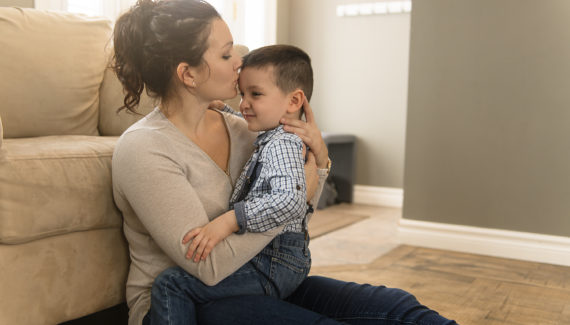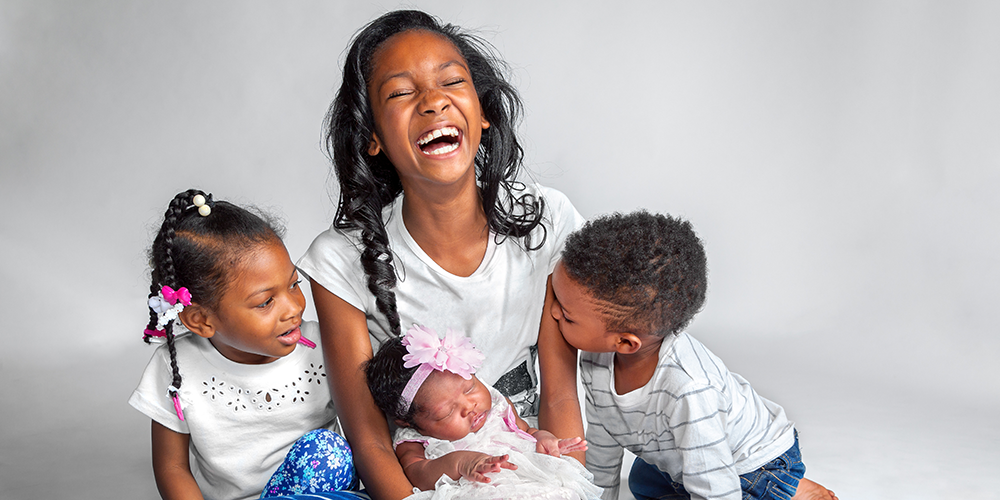So you completed your training, you submitted all the references, you waited on a background check, and you’ve been waiting ever so patiently for your first foster care placement so you can welcome them with open arms…and then the call comes for your foster children!
As we head into the holiday season, we especially begin to think about family traditions. When the world of foster care and family traditions collide, we can get ourselves into some sticky situations without even realizing where we went wrong. Here are some fun tips and tricks to try or consider when new foster children are placed in your home.
The key is to incorporate our newest family members, no matter how temporary, and not alienate their own sense of family identity in the process.
- Ask them! Number one on the list is to consider the newest family members.
o What did they do before your home?
o What did they enjoy?
o What do they never want to do again?
o Are there cultural differences that you should be looking into?
o Were the traditions that they had appropriate? And if not, how can you explain why not and offer a new idea or approach?
– For example; we had one placement where the children were required to attend church service through the holiday season for the purpose of receiving Christmas toys. I am not debating that church was not a positive experience, but the intention needed to be redirected to fit what the actual purpose should’ve been.
-
Christmas Ornaments
o Are you decorating a tree this year? What better way than to include your newest family members by giving them some personalized ornaments or letting them pick a color of glass balls to add to your tree. The nicest part of Christmas ornaments is how transportable they are. Your kiddos are reunited? They can go with them. Amazon even sells “Baby’s First Christmas” ornaments backdated from whatever year your child was born, so if the other kids in your home each have one, you can purchase one for your foster child too! If you think that this will in some way alienate the birth parents or make the child uncomfortable, just let them pick an ornament and you can intentionally add those to your tree–they can even be purchased at a local dollar store. In this case, it truly is the thought that counts! Remember, holidays can be a really sore subject for newly placed foster children, so make sure that you are understanding of how involved they wish to be–or not involved!
-
New Year’s Eve Wishes
o Sometimes (most of the time) the placement itself can be very traumatic; children may be conflicted between their new safety and missing their family. Often even if the placement hasn’t been that long, a new year can signal feelings for foster children of desperation at the idea that they are STILL in foster care. Throw a party at home. Possibly invite some friends of theirs to celebrate with. Rather than leave children at home with a sitter, this may be a time to spend with your children. Let them know that we all are hoping for the best and that you will be there for them no matter how long it takes!
-
Easter Egg Hunt
o The nicest part of an Easter Egg hunt is that this can be done at really any time around Easter. So if the foster children end up at a visit over the holiday, you are still able to do this without any issues. Even older children sometimes enjoy events such as these when coming into foster care because they may have never had this experience before. Steer clear of putting money or change in the eggs. In my personal experience, money can trigger some feelings of their past and send mixed messages. Very small trinkets, toys, or candy keep the mood lighthearted.
-
Spring Cleaning
o This is not a holiday, but definitely is something you can start a family tradition with. Children in foster care may truly enjoy being able to feel like they are able to “give back” to others that are less fortunate. If you take some time to clean out old clothes or toys and look into local organizations that take donations, include your foster children! Let them help decide what can be donated and organize it. Have them help deliver the goods. Giving to others makes everyone happy.
-
Camping
o This can go one of two ways. You should take time to gauge the child and their feelings before introducing the idea. Some children are in love with nature and will love to unplug and enjoy a weekend in a tent. For others, this can spark some serious worry and concern when they aren’t able to understand that the camping is intentional, only for a set time, and that you will be returning to your home afterward. When camping is received well by a child it can be one of the most therapeutic opportunities and memories for them. So don’t miss the chance to enjoy this tradition when you can!
-
Garden Stones
o Okay, so you aren’t adding handprints to your sidewalk anytime soon. But I bet your local department stores sell a garden stone kit! You can have new foster children make a personalized garden stone, with or without a handprint, but something they are able to personalize and create just for them. Then you can add it to a garden in your yard. If and when they are reunited they can choose to leave it or take it home. The nicest thing about this project is if they choose to leave it behind, not only will you have a memory of them, but any new foster children will see stones in your garden of those who came before them, helping them to see they are not alone!
Some other traditions that you may want to consider include;
- Apple picking
- Sleigh riding followed by hot cocoa
- Baking holiday cookies
- Visiting Santa or the Easter Bunny
- Carving pumpkins
- Wearing Halloween costumes and trick or treating
But here is the key! Not all of these traditions will be welcome or appreciated. Get to know your foster child. Tread lightly when new traditions are being introduced. Make sure your extended family knows this and respects it as well. Discuss the traditions with your children. Recognize that some of these practices can cause more harm than good depending on the circumstance that lead a child to your home. Sometimes levels of trust and respect have to be built before you can begin creating family or yearly traditions, and that is okay! And if you have family traditions that are non-negotiable, such as Christmas or Easter Sunday, be completely upfront with your caseworker prior to getting a placement so that the right fit can be made when possible.
Season’s Greetings foster families! We are in this together, and we will get through this together–one tradition at a time, one day at a time.



